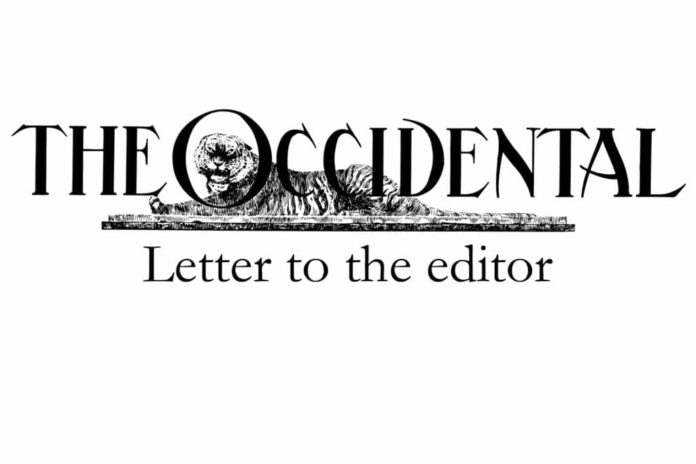I was touted as “Occidental’s Most Involved Student”.
And before I graduate, here are some lessons I’d like to impart.
Throughout my time at Oxy, I have loved exploring my curiosities, which is why I founded some clubs and initiatives, and have gotten involved in many extracurricular projects and professional groups. I also love documenting my learning to know how I’m growing. Here are some lessons I would impart to future students:
I’ll start with my main thesis: take up space, and expand your surface area with life. College is a ripe platform for immersive self-experimentation — knowing your identity, knowing your value systems, knowing your likes and dislikes — gathering data points about yourself is infinitely valuable.
Learning faster is possible — instead of telling yourself you can learn to dance when you’re older, can you show up to a K-Pop dance club this week? Don’t wait for permission. Don’t wait for all the traffic lights to turn green before stepping on the gas pedal. Don’t self-rationalize your way out of courage.
“But Tzu, what should I base my confidence on? I’m no expert in anything!”
When I started all my clubs, I was merely acting on hunches and best guesses. No one’s handing you a book with all the rules.
I just ran with it anyways, and just learn as I go.
I later realized most of the entrepreneurs and founders I admire were all just figuring it out as they went too, which reaffirmed the scrappiness it takes to build anything worth remembering.
A “secret” I discovered about life was that I can learn a lot by doing or by teaching. This isn’t a new idea: It’s formalized in the studying method called the “Feynman Technique” where you try to explain something complicated to someone very young to test your understanding. The quality of your explanation correlates with your understanding. I tested out the hypothesis, in the context of Oxy, that you can learn faster by starting clubs in a selected niche. So don’t ask “What am I valuable for?” Ask “What’s something valuable I can do?”
You’ll be surprised how many people harbor the same struggles, desires or visions — hence, the upside of starting a club is as simple as starting out with a community! This way, you can create more value than you capture.
“What does success look like?”
My current best guess for the main differentiator between successful and unsuccessful self-actualizers is whether or not they take action. Actually showing up for that team meeting, actually sending in that application, actually seeking help, actually overcoming fears — I want to see more self-proclaimed growth-oriented people taking more ambitious actions. Take action, actually do, get feedback from reality. To “Kinda-sorta-wanna” do something is very different from actually doing something. Given how there are uncertainties embedded in everything we do, things can go wrong or surprise us in positive ways we can’t understand yet, so there’s no better feedback mechanism than reality.
Build, build, build.
Growth takes effort. Win by effort.
“How do you achieve more in less time?”
Extraordinary output demands extraordinary input. If you’re gonna put in lots of input, you are necessarily going to fail more than the average person; fostering a kind inner voice and failing gracefully is paramount.
Identify levers and force multipliers. Be a talent magnet: Identify folks with a combination of high intelligence, high integrity and high energy. Building a team around an identity or a vision — eg. “drone nerds” or “build the college’s first esports team” — could help you multiply your impact and expand the pie. Assuming you’ve gathered great talents, things need to be done. Learn to automate tasks. Build up vulnerability to delegate and outsource — people are more willing to help than you think. It’s not about you (ego), it’s about making the idea happen (success). Your friends are great emotional and intellectual force multipliers, invest in your friendships. While you’re taking ambitious actions, you just might pick up one or two cool people or form lifetime connections to do great things with.
“How do I find meaning in anything I do?”
As a philosophy student, I entertain questions about death on the daily. Here’s my take: even though we might never get to the elusive, thing-in-itself-actual meaning of life, I argue we actually already have quite some practical ways to pursue a meaningful life:
Build habits.
Aim to improve 1 percent daily.
Cherish friendships.
Live gratefully.
Pick a sport, skill or obsession; watch it, learn it, get engrossed.
In short, we fight back with intentionality: Speaking in a CSLC way, even if everything is meaningless, then everything we do is meaningful; an opening, a rebellion.
Again, there’s so much to be done in this world. Don’t be complacent. Create. Recognize there’s so much meaning to be created, that this world is shaped by people no different than you and I, who simply took action.
Take initiative, seek discomfort.
Do useful things, make it happen.
I’ll end with a quote from my favorite CSLC class ever, CSLC 283: Style and Substance. Professor Mitsunaga-Whitten quoted T.S. Elliot, “For us, there is only the trying, the rest is none of our business … we’re perfect because we try.”
We’re perfect because we try.
Contact Tzu Kit Chan at tchan2@oxy.edu.
![]()
































Absolute legend